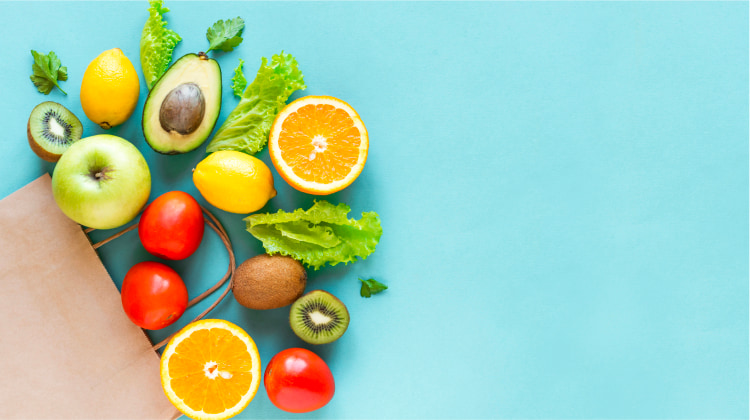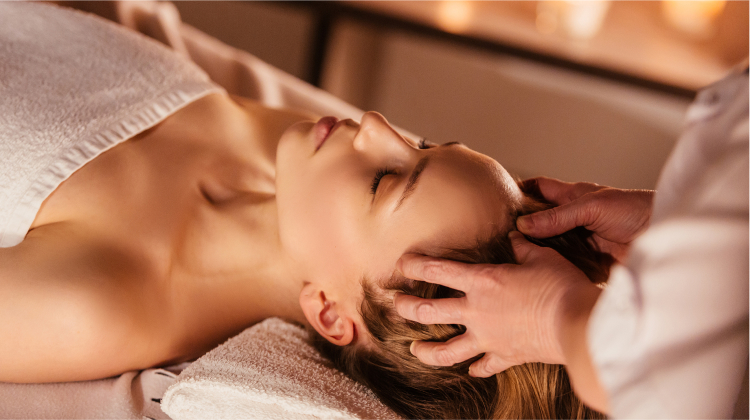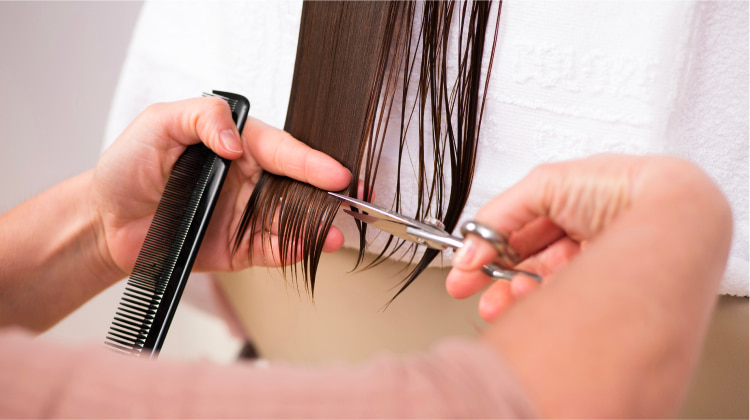
As we bid farewell to winter's chill and embrace the warmth of summer, many of us can't help but wonder, does hair grow faster in the summer? The idea of hair growth accelerating during the warm months might remind us of how flowers, trees, and plants visibly thrive in the sunshine.
But is there any truth to it, or is it just another urban myth? In this article, we'll unravel the mystery surrounding this common beauty question. Get ready to discover whether warm weather summer destinations are the secret to longer locks or if it's all just wishful thinking.
Does Hair Grow Faster in Summer or Winter?
So, does hair grow more in the summer or winter? The answer is summer! Hair growth does increase slightly(1) during the warmer months compared to winter.
To be fair, it's not the summer season per se that boosts hair growth, but the associated climate conditions. A warm winter getaway could have similar effects, while a cool, sun-deprived summer might not impact growth. It all boils down to a combination of factors such as increased vitamin D production, better blood circulation, and reduced hair friction.
Increased Vitamin D Production
Why does hair grow faster in the summer? A significant factor is the increased production of vitamin D. Our skin synthesizes this essential nutrient, often referred to as the "sunshine vitamin," when exposed to the sun's UVB rays.
Vitamin D plays a vital role in hair growth, as it helps regulate the expression of genes involved in keratin production(2), a key component of our hair structure. During the summer months, we're more likely to spend time outdoors and soak up the sun, leading to increased vitamin D production and, as a result, faster hair growth.

Improved Blood Circulation
Warm weather brings a noticeable change in our body's blood circulation. Since our body doesn't need to work as hard to maintain internal warmth, blood vessels near the skin surface dilate, allowing for improved circulation.
This enhanced blood flow delivers essential nutrients and oxygen to the scalp, which is crucial for the production of keratin, the building block of hair.
Additionally, we tend to be more physically active during the summer months, participating in outdoor activities like swimming, hiking, or cycling. These activities further stimulate blood circulation, which in turn positively affects hair growth.
Reduced Hair Friction
Summer fashion and hairstyles tend to be more relaxed and carefree, which has a positive impact on hair growth. Lighter, breezier outfits and accessories mean we're less likely to wear head coverings such as hats, hoods, or scarves that can cause friction, breakage, and even hair loss.
This reduced friction allows our hair to grow more freely, with fewer constraints and damage. By letting our hair down and embracing loose, flowing hairstyles, we can enjoy the benefits of faster hair growth during the warmer months.
Factors Affecting Your Hair Growth

Apart from the seasonal effects we've discussed, various factors can influence hair growth. Some are out of our control, while others can be managed through lifestyle choices. Key factors include genetics, sex, age, hormones, and nutrition.
Genetics, Sex, and Hormones
We can't ignore the role of genetics(3) in determining hair length, density, texture, and color. Although genetics have a significant impact on hair health, certain natural and botanical ingredients can help support hair growth.
Sex and hormones also play a part; male hair typically grows faster than female hair, and hormones like estrogen and progesterone can affect hair thickness during pregnancy, postpartum, and menopause.
Age and Hair Growth
Another element that has a significant impact on hair growth is the individual's age. Men often experience hair loss and greying in their 30s and 40s, while women may see changes in hair throughout their lives due to hormonal fluctuations.
The period of rapid hair growth typically occurs between the ages of 15 and 30, after which the pace begins to decelerate. As people age, some hair follicles stop working, leading to thinner hair or baldness.
The Role of Nutrition
Nutrition is crucial for maintaining healthy hair, and a well-balanced diet can positively impact hair growth. Crucial nutrients necessary for optimal hair health consist of:
- Fatty acids: Found in foods like salmon, flaxseed, walnuts, and avocado, they help improve hair density and prevent nutrient loss.
- Proteins: Foods like eggs, lentils, tofu, and meats are vital for hair strength and growth, as hair is primarily made up of protein.
- Vitamin B: Found in whole grains, eggs, liver, and citrus fruits, this vitamin is essential for hair health.
How to Boost Your Hair Growth
So, we've talked about why hair grows faster in the summer and the factors affecting hair growth. But what if you want to give your hair an extra boost? Here are some practical tips, with further elaboration, to help you achieve luscious locks throughout the year:
Maintain a Balanced Diet

Eating a balanced diet rich in essential nutrients plays a crucial role in supporting hair growth. For instance, incorporating sources of omega-3 fatty acids (such as salmon, walnuts, and chia seeds) can improve hair density and prevent nutrient loss.
Additionally, consuming adequate amounts of protein (found in eggs, lean meats, and beans) ensures your hair has the building blocks it needs for strength and growth. Don't forget to include vitamin B-rich foods (like whole grains, spinach, and avocados) to support healthy hair structure and prevent breakage.
Stay Hydrated

Water is vital for the optimal functioning of our bodies, including hair health. Drinking an adequate amount of water each day (aim for at least eight 8-ounce glasses) helps maintain hair strength and elasticity, preventing dryness and brittleness. Hydrated hair is less prone to damage, breakage, and split ends, contributing to improved hair growth.
Be Gentle With Your Hair

Treating your hair gently is essential for preventing unnecessary damage that may slow down hair growth. Use a wide-tooth comb or a brush with gentle bristles to detangle your hair, starting from the ends and working your way up.
Avoid hairstyles that pull your hair too tightly, as they can lead to hair breakage and even hair loss over time. When using heat styling tools like flat irons, curling wands, or hair dryers, use a heat protectant and the lowest heat setting necessary to minimize heat damage.
Try a Scalp Massage

A scalp massage not only feels relaxing but also has benefits for hair growth. By massaging your scalp for a few minutes daily, you can stimulate blood circulation, ensuring that essential nutrients and oxygen reach the hair follicles.
This improved circulation supports keratin production, which is vital for hair growth. You can use your fingertips or a scalp massager to apply gentle pressure in circular motions all over your scalp.
Trim Regularly

It might seem counterintuitive, but trimming your hair every 6-8 weeks can actually promote healthier hair growth. Regular trims help eliminate split ends and prevent them from traveling up the hair shaft, which can lead to breakage and the appearance of thinner hair. By keeping your ends healthy, you'll minimize breakage and allow your hair to grow longer and stronger.
Use Natural and Botanical Ingredients

Many natural and botanical ingredients can support hair growth and overall hair health. For example, rosemary oil(4) is known to stimulate blood circulation, while lavender oil has been shown to improve hair thickness.
Aloe vera(5), on the other hand, can help soothe the scalp and reduce inflammation, creating a healthier environment for hair growth. Look for hair care products containing these ingredients, or create your own DIY hair masks and treatments using natural oils and extracts.
Manage Stress

Chronic stress can negatively impact hair growth and even lead to hair loss in some cases. It's essential to find healthy ways to manage stress and maintain a balanced lifestyle.
Activities like meditation, yoga, deep breathing exercises, or simply taking a walk in nature can help reduce stress levels and promote a sense of calm. Incorporating these stress-reducing techniques into your daily routine can contribute to improved hair growth and overall well-being.
Final Thought
So, does your hair grow faster in the summer? The answer is yes, but it's not just the season itself that contributes to faster hair growth. It's the warmer climate, increased blood circulation, vitamin D production, and reduced hair friction that make the difference.
While we can't control some factors affecting hair growth, such as genetics, sex, and age, we can still make lifestyle choices that positively impact our hair health. By maintaining a balanced diet, staying hydrated, being gentle with our hair, and following the other tips provided, we can support healthy hair growth all year long.
Frequently Asked Questions
Does weather affect hair growth?
Yes, weather affects hair growth. Hair tends to grow faster in summer due to increased blood circulation, vitamin D production, and reduced hair friction caused by warmer climate conditions.
Why does hair grow slower in winter?
Hair grows slower in winter because the body focuses on maintaining internal warmth, reducing blood circulation to the scalp. Additionally, colder months often have less sunlight, leading to decreased vitamin D production.
Does being in the sun make your hair grow faster?
Being in the sun can make your hair grow faster, as the UVB rays from sunlight are converted into vitamin D by our bodies. Vitamin D helps regulate keratin production, which is crucial for hair growth.
Does hair grow faster in braids?
Hair doesn't grow faster in braids, but braids can protect hair from breakage and damage. This protection may give the appearance of faster growth as the hair retains more length.
Does hair grow faster after you cut it?
Cutting hair doesn't directly make it grow faster, but regular trims help remove split ends, preventing further damage and breakage, leading to healthier and stronger hair.
Does your hair grow faster in a bun?
Wearing hair in a bun doesn't make it grow faster, but it can protect the hair from damage and breakage, potentially helping to retain length and maintain overall hair health.
References
1. Randall, V. A., and Ebling, F. J. (1991). Seasonal changes in human hair growth. The British journal of dermatology, {online} 124(2), 146–151. doi:https://doi.org/10.1111/j.1365-2133.1991.tb00423.x.
2. Tomic, M., Jiang, C. K., Connolly, D., Freedberg, I. M., and Blumenberg, M. (1992). Vitamin D3, its receptor and regulation of epidermal keratin gene expression. Epithelial Cell Biology, {online} 1(2), 70-75. Available at: https://europepmc.org/article/med/1284952.
3. Porter P. S. (1971). The genetics of human hair growth. Birth defects original article series, {online}7(8), 69–85. Available at: https://pubmed.ncbi.nlm.nih.gov/5173315/.
4. Bhaskaran Sasikumar (2012). Rosemary. Elsevier eBooks, {online} pp.452–468. doi:https://doi.org/10.1533/9780857095671.452.
5. Surjushe, A., Vasani, R. and Saple, D. (2008). Aloe vera: A short review. Indian Journal of Dermatology, {online} 53(4), p.163. doi:https://doi.org/10.4103/0019-5154.44785.

.jpg)
.jpg)
.jpg)
.jpg)
.jpg)
.jpg)
.jpg)
.jpg)
.jpg)
.jpg)